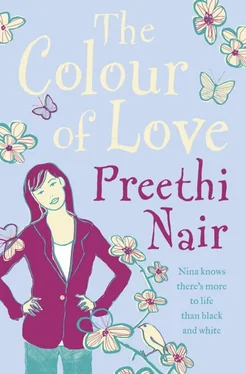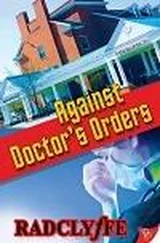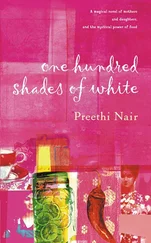I sat back on the bench and was aware that I was making an awful gut-wrenching sound. The wailing came from feeling cheated by the death of my closest friend, cheated by love and the injustice of being touched up and having my faith simultaneously taken away. Unable to fight any more, I let the rain pour down on me. It soaked through my coat as I sat there continuing to think. I thought about the nature of love and how that too was a lie. Ki’s boyfriend had left her to die. Jean Michel had fooled me into believing that it was possible to love. All along my parents had been right. Life wasn’t about emotion, emotion was for people who had nothing better to do with their time. It was about coping and easing the struggle, being practical and realistic, that was what my dad was trying to prepare me for. Their ideas about love were practical, they left no room for emotion and no room to be hurt, let down or disappointed. They were right: romantic airy-fairy notions of love did not exist, and if they did they were impractical and could only lead to disappointment. Life was all about survival. Trust no one as everyone was out for themselves, have no expectations: that way you could not be let down.
Eventually, when I could take the cold no longer, I made my way to the train station.
I was soaking wet so that each time I moved slightly the seat made a sloshing sound. Water ran down from my hair into my face and then dripped onto my coat, which was covered in mud. A scummy dark mess of brown on a brown coat; dirty on the outside, dirty on the inside. The commuters desperately avoided eye contact with me and tried not to look when I emitted that erratic sound; that noise when you can’t quite control your breathing. By the time I got to the High Street I had assimilated the day’s events. I managed to go into McDonalds and clean myself up a bit and by the time I reached our road I had tried to pull myself together. When I got to the blue front door of our semi, I even managed a fake smile.
My mother was in the kitchen making rotis and my father was in the sitting room, snoozing under his newspaper despite the Hindi music blasting out of the television. Their world rotated the same way it had done since 1972 when they came to London. In the evenings, Mum rolled out the rotis and made sure they were perfectly circular. During the day she worked at a tailor’s and sometimes took home extra work making Indian garments. My father had been on the same route for twenty years and wasn’t taking retirement until he saw me married; something else he succeeded in making me feel guilty about.
Although I could see the connection between retirement and marriage, he managed to find a connection between marriage and most things, and if it didn’t provoke a response in me he would bring out the death card. ‘Tell me, who will look after you, Nina, when I die?’ And if he wanted to provoke an extreme response he would say, ‘Are you going to do the same as your sister?’ This, however, was rare, as he did his very best not to mention her.
My sister Jana had left when she was eighteen. Her departure deeply wounded my parents as she had gone off to live with a ‘white boy'. They decided the best way to handle it was to pretend nothing had happened and not to talk about her, exiling her into the recesses of their minds. The jewellery my mother had saved for her wedding was safely packed away in the hope that at some stage it could be used for me. So I knew it was madness going out with Jean Michel because it couldn’t lead anywhere, but he convinced me that everything would work out and that he could win them round. Foolishly, I believed him.
Outwardly my parents hardly ever showed signs that Jana’s departure had affected them, and in those intervening years many things happened but their routine remained the same. At exactly seven o’clock they would eat and by eight they would both be in bed, flicking between Zee TV and ITV.
‘Didn’t you take your umbrella, beta? What has happened to your coat?’ my mother asked, putting down her rolling pin and handing me a multi-stained tea towel to wipe myself down with.
‘I fell over.’
‘Go and get changed,’ she said, picking up the rolling pin and pointing it at me.
‘Ma …’
‘Hmmm …’
‘About Raj, Ma, you know, the accountant man.’
She put down her rolling pin again and turned to look at me. Her eyes lit up like all her prayers had finally been answered.
‘I’ll see him. You can call his mother to arrange it.’
Why exactly these words came out of my mouth remains a mystery; perhaps it was easier than, ‘Ma, I’ve been touched up by a Guru, I’ve lost my job, found my boyfriend with someone else and have accepted that Ki is dead.’ Or maybe it was just that I was finally ready for the kind of stability they had: a gale-force wind could descend upon them, or an earthquake that measured eight on the Richter scale, and they would still be unaffected. In the words of my father, ‘This is what the routine and the discipline are both bringing.’
I went to have a shower, vigorously scrubbing every part the Guru had touched until it hurt while I began figuring out ways to break the news to my dad that I no longer had a job.
He was sitting there in the front row when I graduated. That’s when he really got into power dressing – wearing red and looking like Santa. It also gave him a certain amount of status in the community to say that his daughter was a lawyer and he would often get out the graduation photo and tears would form in his eyes.
That’s why I couldn’t tell them when I went back downstairs. He munched through his rotis asking if I had had a good day, not really stopping to listen for an answer but telling us about some rude passenger who had refused to pay full fare and how he ‘bullocked’ him and how he was tired of the ‘riff-raffies’ on his bus. Mum had put Raj’s CV safely to one side and kept looking over at it and touching her heart as if to tell me that it would break it if I went back on my word. I couldn’t eat anything so told them that I had had something after work, had had a long day and needed to go to bed.
Unable to sleep, I had lots of questions with no answers and an aching feeling of emptiness and solitude, compounded by the fact that I wanted to scream and scream out loud and not stop. But I couldn’t. The day had begun with the Guru’s hands touching me, his fingers circling my lips, and ended with me covering my mouth, making some pathetic, muffled sounds under the duvet so that nobody could hear.
That weekend I didn’t get out of bed. I was running a temperature and was in a state of complete delusion. I could hear my mum faintly in the background, pottering about, bringing food to me, mumbling something about not taking an umbrella, but I slept through it in a blissful state of illusion, imagining that I was married to Jean Michel, that everything had been a nightmare. It was only my dad’s voice that managed to penetrate through my dreamlike state.
‘You’ll be late, Nina. Don’t want to get the sack, get up, you’re better now, no?’
Waking up that morning, when every part of me wanted to remain in a heap, was hell.
‘You’ll be late, Nina,’ my dad shouted again, and then I heard him say to my mum, ‘When I was her age I had to get up at five o’clock every day, even when I was sick. And I was married.’ He said it like marriage had been a double punishment but my mum wasn’t listening. Her mind was still on her future son-in-law.
Dad married Mum under a fog of controversy. It was controversial in the sense that he felt he had been duped. The story goes that he had a chesty cough and went to a chemist, well not really a chemist as you would expect but a shop somewhere in Uganda and that this beautiful woman served him. He was, at the time, searching for a wife and was utterly taken with her. He made a few enquiries as to her eligibility but it turned out that she was already married to the man who owned the chemist’s. In true Indian style, not letting an opportunity go, the woman said she had a sister who lived with her parents in India who would be perfect for my father.
Читать дальше












